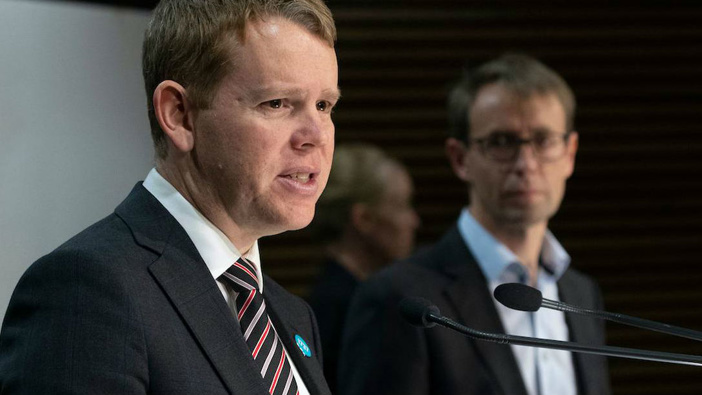Follow
the podcast on


The Government will today unveil how the hospital system will cope with an expected inundation of Covid-19 cases, with worst-case scenarios showing the region including Auckland and Northland, could face more than 5000 cases a week in a Covid surge.
Cases are likely to rise as the country moves beyond the elimination strategy - with Covid-19 Response Minister Chris Hipkins confirming on Wednesday case numbers are expected to rise in Auckland in the coming days.
On Thursday morning, the Government's chief medical officer Andrew Connolly, GP Dr Jeff Lowe and senior co-ordinating official Russell Simpson will join Health Minister Andrew Little to unveil their plan for the health system's future.
The Government is billing the plan as preparing the country for the post-vaccination future, but with cases currently rising, it is possible the health system will be tested before the vaccination rollout is complete.
Connolly told RNZ's Nine to Noon this week that a worst-case scenario he had seen modelled would see cases continue to rise, until they eventually surged - hitting more than 5000 cases a week in the Northern region, which takes in everything north of the Bombay Hills, including Auckland.
"At that point, we know we're basically facing significant increases in cases each day until we plateau and the plateau period is probably for four to six weeks, and they could see around 5200 5300 cases per week in the northern region," Connolly said.
"The vast majority of those patients ... will not need to come into hospital," he said.
Connolly said "at our worst" the health system was expecting "upwards of 150 patients in the northern regional hospitals at any one time".
Most patients, he said, would be treated at home, rather than in a quarantine facility, as is the case currently.
"A lot of our work now is directed towards preparing for self-isolation or isolation within the community," he said.
Connolly said this would require collective effort from primary care like GPs, and other voluntary organisations. Which really requires a whole-of-system effort from our colleagues in primary care, non-governmental organisations.
He said this would involve "delivering them foods, delivering them the medications they need, in generally speaking, virtual checkups each day to see how they're going".
This strategy would keep only people who were seriously ill in hospital and reduce pressure on intensive care (ICU).
Connolly said that the modelling on ICU he had seen was "in some respects reassuring".
"It suggests we'd have a maximum ICU occupancy of Covid at any one time of 43 Covid patients in our ICUs - and we'd average during that peak period around 34," he said.
He said those numbers would be "heavily intensive on the staff that have to care for those patients", but did not suggest ICUs would be overwhelmed.
- Thomas Coughlan, NZ Herald
Take your Radio, Podcasts and Music with you









